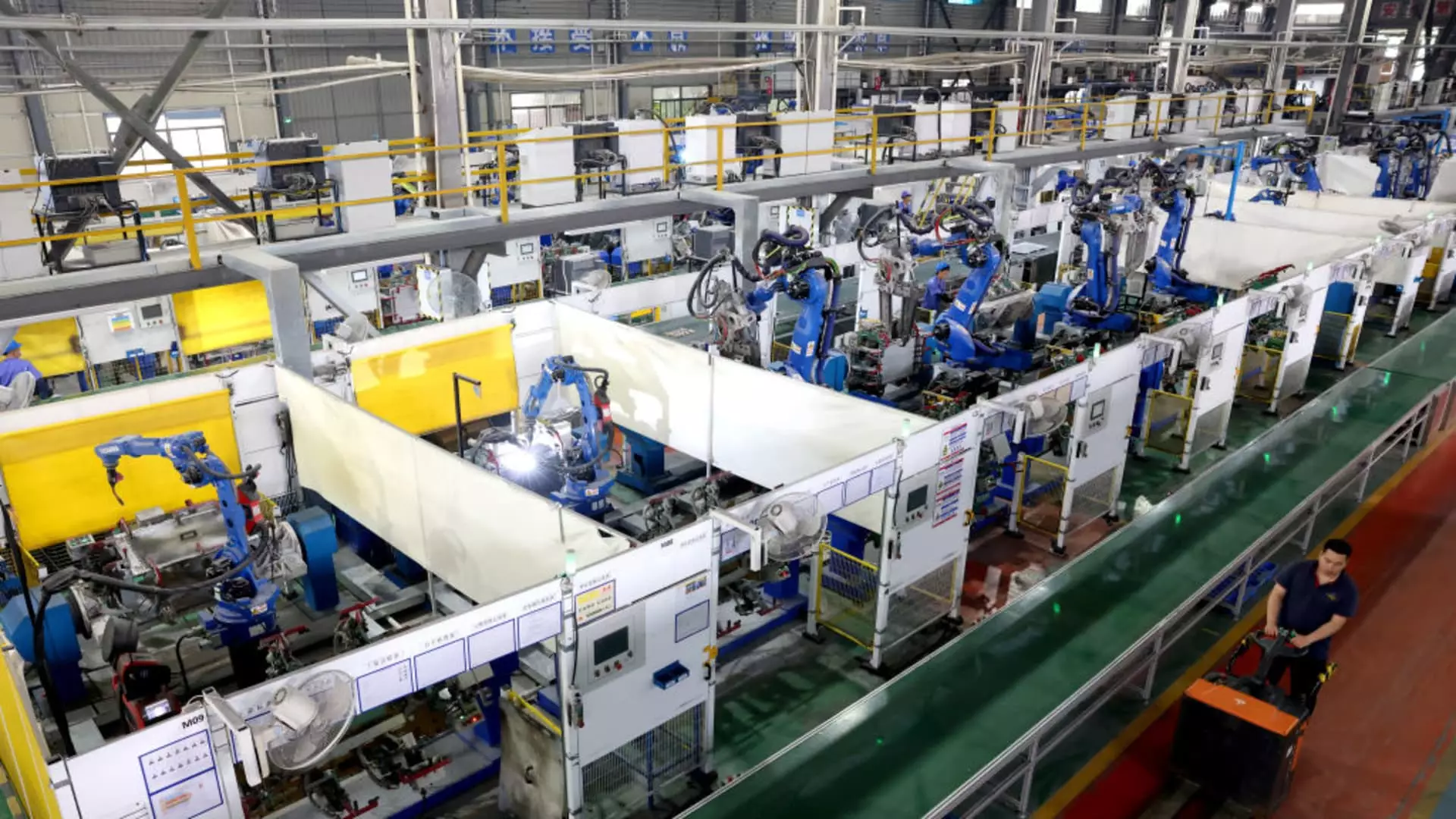European companies operating in China are facing an increasingly difficult economic landscape. A recent survey conducted by the EU Chamber of Commerce reveals that as China’s growth slows and overcapacity issues rise, it has become harder for European businesses to maintain profitability in the country. Delays in payments and challenges in enforcing contracts have become prevalent, especially in cities like Shanghai. The state-owned enterprises are using delayed payments as a way to obtain defacto loans from smaller companies, further exacerbating the financial strain on European businesses.
The slowdown in China’s growth is attributed to geopolitical tensions and a slump in the real estate sector, which has strong ties to local government finances. According to the survey, only 30% of EU Chamber respondents reported higher profit margins in China compared to their global averages, marking an eight-year low. This significant drop in profit margins reflects the challenges faced by European companies in navigating the evolving Chinese market. Jens Eskelund, the President of the EU Chamber, highlighted the cyclical nature of China’s economic slowdown, raising concerns about its duration and severity.
China’s economic landscape has undergone significant changes since 2015 and 2016, with the country’s economy now larger than before. Escalating trade tensions with the U.S. have led Beijing to focus on manufacturing to enhance tech self-sufficiency. The composition of China’s GDP has become a crucial factor for foreign companies, as the correlation between GDP growth and their profitability weakens. The emphasis on manufacturing and overproduction has heightened global concerns about dwindling profit margins, with a growing number of EU Chamber respondents reporting overcapacity in their industries.
Chinese authorities have ramped up efforts to attract foreign investment, introducing visa-free policies for select EU countries and extending tax exemptions to encourage international staff to stay in China. While some industries have benefited from China’s market-opening efforts, regulatory barriers still pose significant challenges for European companies. Although Beijing periodically revises its “negative list” to allow foreign businesses in certain industries, there is room for improvement in implementing measures to enhance the environment for foreign companies.
Despite the challenges and uncertainties, European companies in China are cautiously optimistic about their growth potential. However, a growing number of respondents remain skeptical about future growth, profitability, and competitive pressures in the Chinese market. The need to cut costs, missed opportunities due to regulatory barriers, and the persistent concerns about the regulatory environment underscore the ongoing struggles faced by European businesses in China. As the economic pressures in the local market become more permanent, companies must adapt and evolve to thrive in the changing business landscape.
The survey results reveal a complex and challenging environment for European companies operating in China. Navigating the economic slowdown, overcapacity issues, regulatory barriers, and evolving market dynamics require a strategic approach and proactive measures to sustain profitability and growth in the long run. By understanding the nuances of the Chinese market and adapting to the changing landscape, European businesses can position themselves for success amidst the evolving challenges in China.

